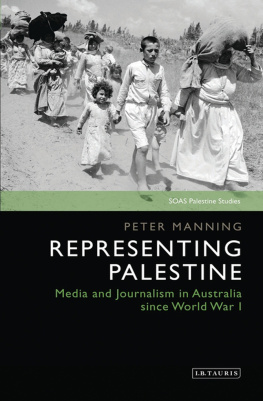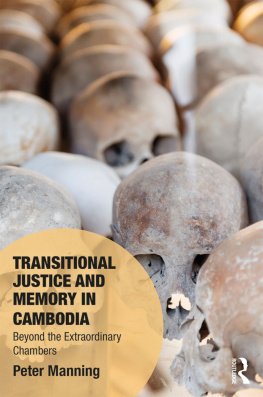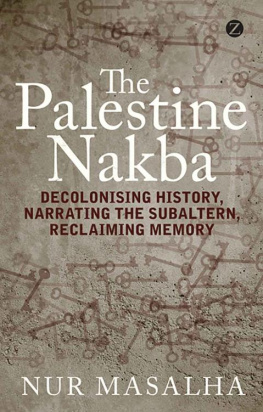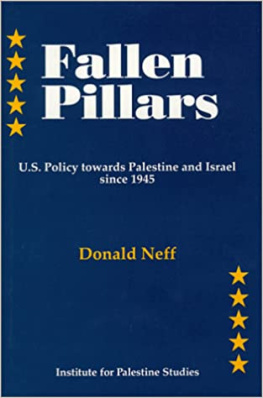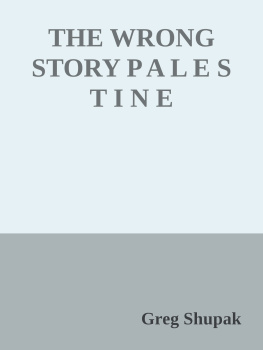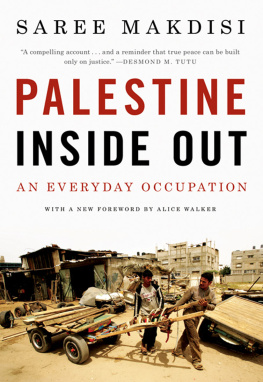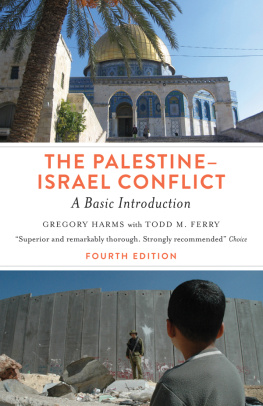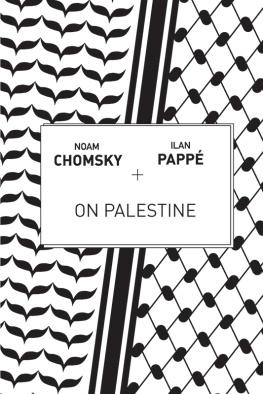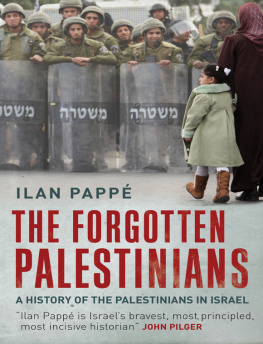Peter Manning, PhD, is Visiting Fellow in the School of Communication, Faculty of Arts and Social Sciences at the University of Technology Sydney. Before turning to academia, he was an investigative reporter, producer and then executive producer of Four Corners in the 1980s and head of the Australian Broadcasting Corporations TV News and Current Affairs department in the early 1990s, starting Lateline, Foreign Correspondent and Landline. He later went on to be head of Current Affairs at the Seven Network. He is also the author of Us and Them: A Journalists Investigation of Media, Muslims and the Middle East (2006), along with other books, chapters and papers.
Israel and Palestine occupy a unique place in Australian media and politics. This meticulous research exposes the origins of this extraordinary engagement. This forensic analysis of the Australian medias coverage of the Palestine issue exposes clearly the crucial role the international media plays in the fortunes of one of the worlds oldest conflicts. A must-read for anyone caring about Palestine and interested in medias ethics and contribution to global peace.
Illan Papp, Professor of History, Director of the European Centre for Palestine Studies, University of Exeter
Through a detailed and solid textual analysis, this book provides a media history that describes an Australian newspapers portrayal of the Palestinians during peak periods of news interests over a century. It offers a history of journalistic practices and ethics as well as a critical account of the roots of twenty-first century demonisation of the Palestinians.
Dina Matar, Senior Lecturer in Arab Media and Political Communication and Head of the Centre for Global Media and Communication, SOAS
SOAS PALESTINE STUDIES
This book series aims at promoting innovative research in the study of Palestine, Palestinians and the Israel Palestine conflict as a crucial component of Middle Eastern and world politics. The first ever Western academic series entirely dedicated to this topic, SOAS Palestine Studies draws from a variety of disciplinary fields, including history, politics, media, visual arts, social anthropology, and development studies. The series is published under the academic direction of the Centre for Palestine Studies (CPS) at the London Middle East Institute (LMEI) of SOAS, University of London.
Series Editor:
Gilbert Achcar, Professor of Development Studies and International Relations at SOAS, Chair of the Centre for Palestine Studies
Board Advisor:
Hassan Hakimian, Director of the London Middle East Institute at SOAS
Current Titles:
Palestine Ltd.: Neoliberalism and Nationalism in the Occupied Territory, Toufic Haddad
Politics and Palestinian Literature in Exile: Gender, Aesthetics and Resistance in the Short Story, Joseph R. Farag
Palestinian Citizens of Israel: Power, Resistance and the Struggle for Space, Sharri Plonski

Published in 2018 by
I.B.Tauris & Co. Ltd
London New York
www.ibtauris.com
Copyright 2018 Peter Manning
The right of Peter Manning to be identified as the author of this work has been asserted by the author in accordance with the Copyright, Designs and Patents Act 1988.
All rights reserved. Except for brief quotations in a review, this book, or any part thereof, may not be reproduced, stored in or introduced into a retrieval system, or transmitted, in any form or by any means, electronic, mechanical, photocopying, recording or otherwise, without the prior written permission of the publisher.
Every attempt has been made to gain permission for the use of the images in this book.
Any omissions will be rectified in future editions.
References to websites were correct at the time of writing.
SOAS Palestine Studies 4
ISBN: 978 1 78831 182 3
eISBN: 978 1 83860 902 3
ePDF: 978 1 83860 903 0
A full CIP record for this book is available from the British Library
A full CIP record is available from the Library of Congress
Library of Congress Catalog Card Number: available
To my trio of friends and mentors:
Professors Heather Goodall, Ahmad Shboul and Liz Jacka
CONTENTS
The statistics in the Tables are the authors. All credits for Figures are outlined in the Acknowledgements and Maps were designed by Dr Ross Burns.
Tables
.
.
.
.
.
.
.
.
.
.
.
Maps
.
.
Figures
.
.
.
.
.
.
.
.
| AAP | Australian Associated Press |
| ABC | Australian Broadcasting Corporation |
| AHC | Arab Higher Committee |
| AJA | Australian Journalists Association |
| BBC | British Broadcasting Corporation |
| DT | Daily Telegraph |
| EEF | (British) Egyptian Expeditionary Force |
| IZL | Irgun Zevai Leumi (national military organisation) |
| JA PRO | Jewish Agency Public Relations Office |
| JNF | Jewish National Fund |
| LHI | Lohamei Herut Israel (Freedom Fighters for Israel) |
| NAA | National Archives of Australia |
| NSW | (State of) New South Wales, Australia |
| NYT | New York Times |
| SAI | State Archives of Israel |
| SMH | Sydney Morning Herald |
| UNSCOP | United Nations Special Committee on Palestine |
| UNWRA | United Nations Relief and Works Agency |
| WZO | World Zionist Organization |
| ZFA | Zionist Federation of Australia |
The question of Palestine with its corollaries, the Israel Palestine and Arab Israeli conflicts has been a key issue of world politics and a major source of world tension since the 1917 Balfour Declaration. Few global issues have attracted so much attention over such a long period of time.
As a result, despite its small territorial size, Palestine has become a key component of Middle East studies in the academic community as well as a field of study in its own right, in the same way that France or Germany are each the subject of individual study while being part of European Studies. This disproportionate status of the Palestine topic is due to several factors.
First is the strategic location of Palestine at the Mediterranean door of the Middle East and the East of Suez world. This strategic position the source of British interest in Palestine at the beginning of the twentieth century has been enhanced by the greater importance of the broader Middle East in global affairs as manifested by the high frequency of wars and conflicts in the region since World War II, and even more since the end of the Cold War.

